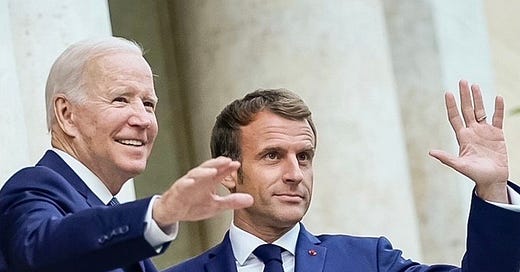Over the last decade, parliamentary and presidential elections were largely supposed to rubber-stamp a selection of leaders made for voters either by the political parties or by the globalist elite, or both. This is why the 2024 elections in France and the UK have produced unexpected outcomes.
Both elections were called early in order to shore up the political fortunes of President Macron’s Ensemble party, respectively that of the Conservative Party in the UK.
Unfortunately for their initiators, neither of the two high-risk elections were successful. In France, President Macron’s party has lost its relative majority in parliament, to the benefit of the nationalist Rassemblement National led by Marine Le Pen. In the UK, the Tories have suffered their worst ever electoral defeat, losing their comfortable majority in favour of the Labour Party. For the first time, the nationalistic Reform UK party led by Nigel Farage has won 14% of the vote and 5 parliamentary seats .
To be sure, nationalist parties have constantly increased their share of the votes Europe-wide, from Austria, Hungary and Slovakia in Central Europe, to Germany and Italy, Spain , France and the UK in the West.
Two of the main reasons voters back nationalist parties are political leaders’ attitudes towards the war in Ukraine, which could potentially lead to a direct confrontation with Russia, and illegal immigration . Despite years of sustained propaganda about Moscow’s wickedness and its designs against Europe, few voters believe that Russian tanks are going to attack their countries. The majority of citizens also know that the real threat to their societies comes from unchecked illegal immigration, not from Russia.
When it comes to the latest results at the ballot-box, there is a lack of discussion about the electoral fortunes of war-mongering politicians who pushed for deeper Western involvement in the Ukraine conflict.
And yet, the trend is obvious. Voters - to their credit- have penalised the hawks with the loss of a majority (as happened to Emmanuel Macron who, as of yesterday, has become a lame duck president), or have eliminated them altogether from parliament (as in the cases of Liz Truss or Grant Shapps). Kiev’s most vocal champion, Boris Johnson, had been forced out of 10 Downing St two years ago and he also had to resign his parliamentary seat. This veritable Ukrainian “curse” has now crossed the Atlantic Ocean and is about to wreck Joe Biden’s reelection chances, as well.
By contrast, despite vilification in the media, the popularity of political leaders who have risen against deeper involvement in Ukraine, or have blamed the current situation on NATO’s aggressive expansion, like Marine Le Pen and Nigel Farage, is going from strength to strength. The electorate sees through the lies of the political class and align themselves instead with the anti-war attitude of nationalistic politicians.
The message is that the European public opposes deeper involvement in Ukraine and war with Russia.
In future, the simple realisation that politicians who ignore the mood of the public when it comes to potential war with Russia will be wiped out at the polls should ideally prevent future “Russia hawks” from reaching the top echelons of political power in the West.
As European leaders are gathering in Washington for the NATO anniversary summit, they are duty-bound to remind the war party in the US that expansion has been a leading cause of the current war in Europe and that continuing on this path can only make matters much worse. Failing this, they are going to be confronted with severe social consequences, political instability and economic turmoil.
In hindsight, the much-touted NATO expansion of 2023 was, in fact, just a Pyrrhic victory, as it has increased the risk of conflict with Russia, a leading nuclear power. Americans should also be reminded in no uncertain terms that this is the opposite of why the NATO alliance was created 75 years ago.


